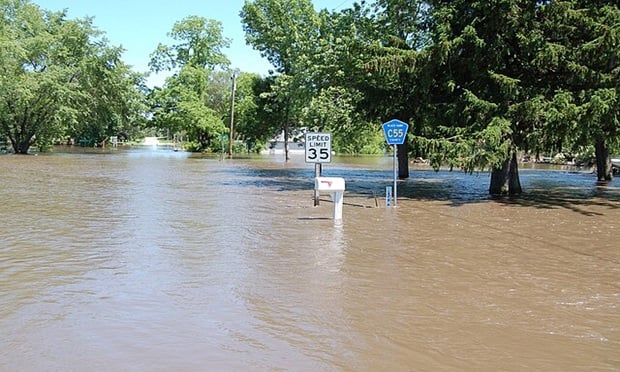Pioneer Agents Bank On The Future
Like it or not, the financial services world is changing and has been for years. The passage of the Gramm-Leach-Bliley Financial Services Modernization Act was just Congresss way of catching up with what commerce was already doing.
The silos that once housed insurance, banking and investments have broken down and the consuming public has come to expect, even demand, more integrated financial services management.
Brokerage firms, banks and even insurance companies have had an advantage in their ability to deploy capital in development or acquisition as they expanded their business lines. Independent insurance agents who want to remain independent, and their captive counterparts, have been at a competitive disadvantage compared to them.
However, opportunities for business line expansion have started to present themselves to independent agents. Trade association and industry-sponsored banks have been chartered to offer banking products and services through the independent agency network. And why not? The independent insurance agent has what every other financial service provider strives for–relationships.
The addition of these product lines can prove to be valuable for both agents and the banks. Banks gain entry to a valuable market with an experienced sales force; agents enjoy a deeper relationship with their client and additional revenue.
However, change can be difficult, especially when things have been done a certain way for many generations, which can be the case in many agencies. When it comes to change, agencies fall into three general classifications: “The Pioneers,” “Im from Missouri” and “The Denialists.”
“The Pioneers” are those agents who embrace change for the sake of adding value to their business. They view business opportunities with enthusiasm and are willing to take reasonable risks to further their success. They ask the question, “How relevant will my business be if I dont change?”
Their motives for embracing banking products are both defensive and offensive. The defensive strategy is used in the sense that if they do not provide for the delivery of a residential mortgage or auto loan, the lender who does provide that financing will cross-sell insurance and other financial service products.
In the offensive strategy they actively market banking products to their existing client base as well as use them to prospect for new clients.
Those who embrace banking services view themselves not only as insurance agents but also as financial service professionals. They view the inclusion of banking products in their businesses as a matter of relevance.
The second classification, “Im From Missouri” (whose slogan is “The Show Me State”) are agents who see some benefit to the expanded capabilities that banking products provide, but are hesitant to embrace such change until they see proof from “The Pioneers” of success. They will accept change so long as there is fairly limited risk.
They seek testimonials from peers to help them over the hurdles of resistance. The majority of these agents will embrace these opportunities, but do so slowly and with less conviction than “The Pioneers.”
Agents who look at anything that differs from their current practice as impertinent fit the third classification, “The Denialist.” They feel their clients only expect them to sell insurance. These agents are certainly a minority, but theres one in every bunch.
The attitude is understandable if past performance were a guarantee of future results. Who can blame them? Change is uncomfortable and often presents unknown risks.
However, the world of financial services is changing. “The Denialist” can deny that these changes are affecting his or her business and resist adaptation. Eventually, “The Denialist” may accept change, begrudgingly, and merely as a means of survival.
Financial modernization is upon us. It is a brave new world. Independent insurance agencies should look at these challenges as positive and should approach them with enthusiasm. This changing world provides an opportunity for growth of revenue and growth in relationships. The underlying value proposition will ensure the independent agency systems relevance for years to come.
Mike Herlihy is president and chief executive officer of InsurBanc, a full-service bank chartered by the Alexandria, Va.-based Independent Insurance Agents of America.
Reproduced from National Underwriter Property & Casualty/Risk & Benefits Management Edition, October 15, 2001. Copyright 2001 by The National Underwriter Company in the serial publication. All rights reserved.Copyright in this article as an independent work may be held by the author.
Want to continue reading?
Become a Free PropertyCasualty360 Digital Reader
Your access to unlimited PropertyCasualty360 content isn’t changing.
Once you are an ALM digital member, you’ll receive:
- Breaking insurance news and analysis, on-site and via our newsletters and custom alerts
- Weekly Insurance Speak podcast featuring exclusive interviews with industry leaders
- Educational webcasts, white papers, and ebooks from industry thought leaders
- Critical converage of the employee benefits and financial advisory markets on our other ALM sites, BenefitsPRO and ThinkAdvisor
Already have an account? Sign In Now
© 2025 ALM Global, LLC, All Rights Reserved. Request academic re-use from www.copyright.com. All other uses, submit a request to [email protected]. For more information visit Asset & Logo Licensing.








